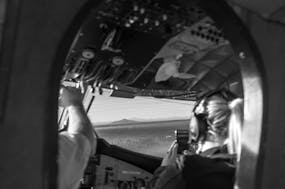When Avenir-Suisse held its 6th International Think Tank Summit on “Challenges of a multipolar world” earlier this year, Russia’ s invasion of Ukraine was not yet a topic. The focus lay on the rivalry between the USA and China, and how this has affected various policy areas. As a result, four panels were organised on trade and investment, technology and security, geopolitics and institutions and the role of small open economies.
The recordings of these discussions will be published in the following weeks. Last week, we shared the welcome speech by Peter Grünenfelder (Director Avenir Suisse), as well as the opening speech held by the Federal Chancellor Walter Thurnherr. You can watch it here.
This week, we are publishing the keynote speech and panel discussion from the “trade and investment” block: In the keynote speech, Dr. Markus Braun – Senior Lecturer of International Management at the Zurich University of Applied Sciences (ZHAW) – covers the megatrends of globalisation and digitalisation that are changing the face of international trade. He addresses that the global export value of trade increased significantly between 1985 and 2008. Among other things, this was driven by:
- Increasing interconnectedness and access to new communication tools,
- access to relatively cheap financing thanks to quantitative easing and fiscal stimulus,
- China opening its market and entering the WTO in 2001,
- the establishment of continental trading zones.
However, in recent years, the rule-based trading system has come under scrutiny and tariffs have been reimplemented – often for geopolitical reasons. As a result, new trading patterns are emerging that are presenting new challenges for globalised countries such as Switzerland.
Dr. Braun’s speech was followed a panel discussion, where he was joined by Dr. Theresa Fallon – Director and Founder of CREAS – and Dr. Christian Etter – former Ambassador and Swiss Government Delegate for Trade Agreements. The panel was moderated by Teresa Hug Alonso.
The panellists addressed questions such as the role of free trade agreements in the current rivalry between the US and China, the position of the EU as well as the challenges that exist for firms, which are trying to operate in both markets.
Finally, on the topic of investments, in particular the instrument of investment controls was discussed. It was argued that they are not the most effective way of achieving security, with Dr. Fallon stating that: “It is almost impossible to trace what [China] is investing in. So [FDI-screening] is like shutting the barn door after the horse has left. It sounds great on paper, but the reality is that it is not very effective.”














